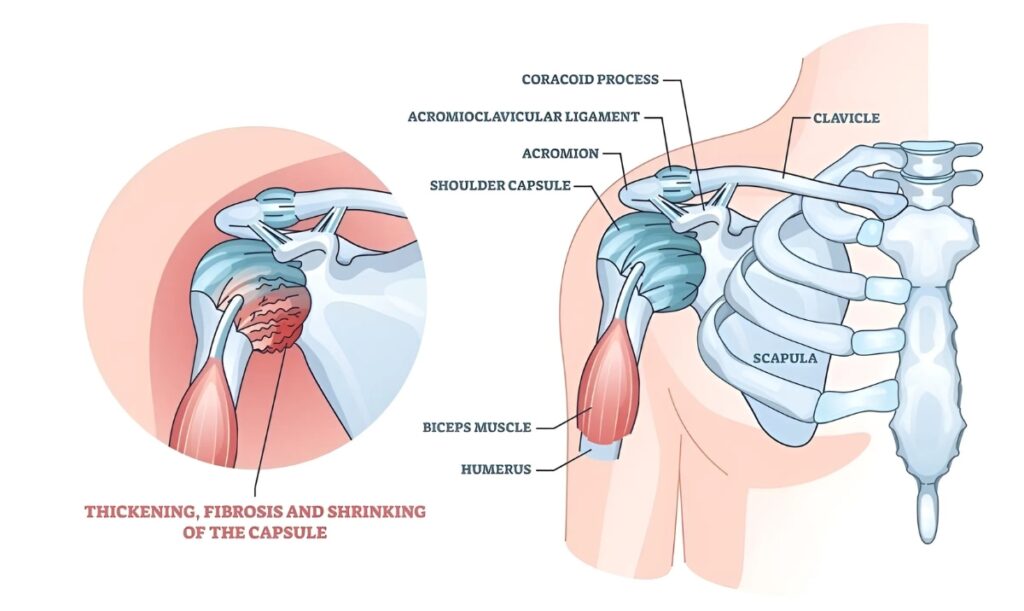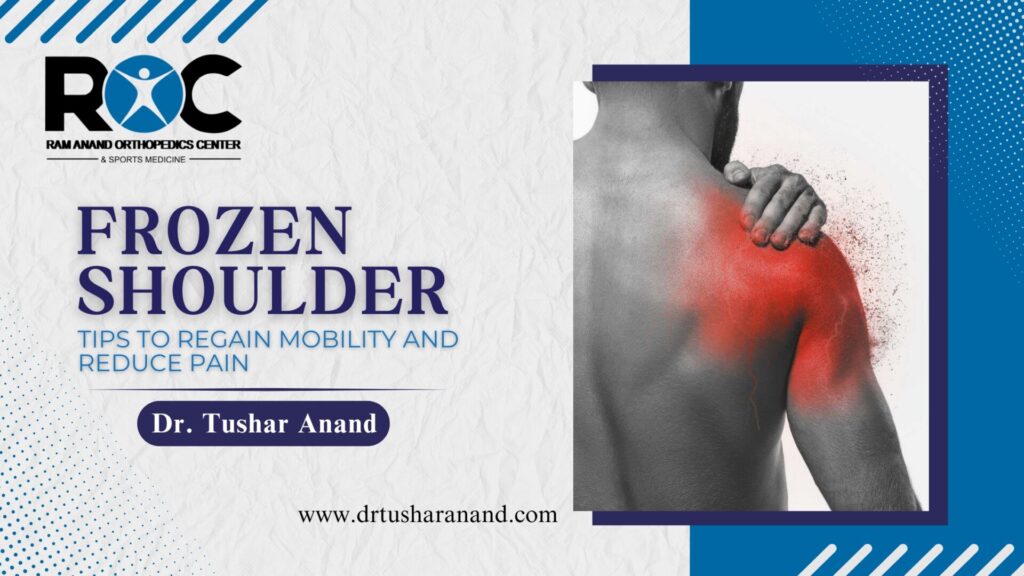Frozen Shoulder: Tips to Regain Mobility and Reduce Pain
Frozen shoulder, also called adhesive capsulitis, is a condition that causes pain and stiffness in the shoulder joint. Over time, the shoulder’s range of motion becomes restricted, making everyday tasks challenging. Fortunately, with proper care and attention, you can regain mobility and reduce pain effectively.
If you’re struggling with frozen shoulder and need expert care, consult a trusted orthopedic doctor in Meerut.
Understanding Frozen Shoulder
It occurs when the capsule surrounding the shoulder joint thickens and tightens. This restricts movement and leads to discomfort. The condition progresses through three stages:
- Freezing Stage: Pain intensifies, and the range of motion decreases.
- Frozen Stage: Pain subsides, but stiffness becomes more pronounced.
- Thawing Stage: Mobility begins to improve gradually.
Common causes include prolonged immobility due to injury or surgery, diabetes, or certain chronic illnesses. While it typically affects people between 40 and 60 years of age, anyone can experience this.

Tips to Regain Mobility and Reduce Pain
1. Gentle Exercises
Exercise plays a vital role in managing frozen shoulder. Gentle stretches and strengthening exercises can improve flexibility and relieve stiffness. A few effective exercises include:
- Pendulum Swings: Lean forward, let your arm hang, and make small circular movements.
- Towel Stretch: Hold a towel behind your back and gently pull upward with one hand.
- Cross-Body Stretch: Use your unaffected arm to pull your affected arm across your chest.
Always consult a physiotherapist to ensure exercises are appropriate for your condition.
2. Heat and Ice Therapy
Applying heat can relax the muscles and improve blood flow, reducing stiffness. Use a heating pad or warm compress for 15-20 minutes. For pain relief, ice packs can be applied for 10-15 minutes. Alternating between heat and ice may offer optimal relief.
3. Maintain Good Posture
Poor posture can exacerbate frozen shoulder symptoms. Ensure your shoulders are relaxed and avoid hunching forward. Proper posture supports healing and minimizes additional strain.
4. Physical Therapy
A professional physical therapist can design a personalized plan to restore shoulder mobility. Therapy sessions often include manual techniques and guided exercises to safely improve movement and reduce pain.
5. Pain Management
Over-the-counter medications like ibuprofen or acetaminophen can help alleviate pain. If the discomfort persists, your doctor may recommend corticosteroid injections to reduce inflammation.
Preventing Frozen Shoulder
While some risk factors like age and diabetes are unavoidable, you can take steps to minimize the chances of developing frozen shoulder:
- Stay Active: Regular physical activity keeps the joints flexible and prevents stiffness.
- Address Injuries Promptly: If you experience a shoulder injury, follow your doctor’s advice to avoid prolonged immobility.
- Manage Chronic Conditions: Conditions like diabetes should be well-controlled to reduce your risk.
When to Seek Medical Help
If you notice persistent shoulder pain or stiffness that interferes with daily activities, consult a healthcare professional promptly. Early intervention can prevent the condition from worsening and speed up recovery.
It can be challenging, but with consistent care and appropriate treatment, you can regain mobility and lead a pain-free life. Don’t hesitate to seek professional guidance to ensure the best outcomes for your shoulder health.
For specialized care and treatment, reach out to an experienced Orthopedic Doctor in Meerut.
Faqs:
What causes frozen shoulder?
It is caused by thickening and tightening of the capsule around the shoulder joint, often due to immobility after injury or surgery. Conditions like diabetes or hormonal changes can also increase the risk.
How is frozen shoulder diagnosed?
Doctors diagnose frozen shoulder through physical examination, checking range of motion, and imaging tests like X-rays or MRI to rule out other conditions.
Can frozen shoulder heal on its own?
Yes, It can heal on its own over time, usually within 1-3 years. However, treatment can significantly reduce pain and improve mobility faster.
What exercises help with frozen shoulder?
Gentle stretches like pendulum swings, towel stretches, and cross-body stretches are effective. Always consult a physical therapist before starting exercises.
Is surgery necessary for frozen shoulder?
Surgery is rarely needed for frozen shoulder. Most cases improve with physical therapy, pain management, and other non-surgical treatments.

